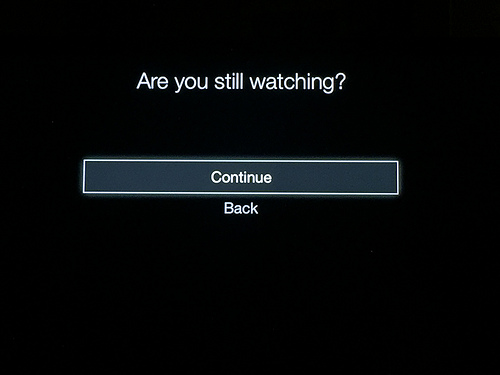Louis Armstrong’s “What a Wonderful World” talks about how the world is wonderful. But the song does not mention Google, strange, right? Maybe it’s because the song was released in 1967 before the birth of Google or maybe it’s because Google is not that wonderful.

So what is Google?
Google. What a wonderful search engine. It helps one find out who a celebrity is dating, the scores to the latest hockey game, and learning about the latest fashions trends. It allows you to play games and stream music.
Also, for those in university, Google is a great source to find help for math questions and translations for Shakespeare’s English. I’d be lying if I said I did not use Google at all. I use it all the time.
This week in EDTC 400, we discussed the topic “schools should not focus on teaching things that can be googled”. Do I agree or disagree? Continue reading to find out.
Agree
Sydney argued the agreeing side to this debate. The article “Why learn facts if you can Google”, helps defend Sydney in her fight. Do children need to learn dates? While knowing dates can be deemed important in a lesson such as history for the sake of chronological order, the dates of an event aren’t usually the main purpose of the lesson. This article suggests students should be taught the history and the reason of why events happened but when it comes to dates, they can be googled. I think this is true, dates are the hardest concept to remember when studying for a test in such a way that they take away from understanding why a certain event happened. What is more important… the dates of every single war between the French and the British when Canada was first explored or understanding the impact the French and British have on Canadian society today? If a student expresses interest in knowing the dates, they are able to go online and search for the dates which can easily be found.

”Google not, learn not: why searching can sometimes be better than knowing” also examines why teachers should not focus on teaching things that can be googled. One point I feel speaks volume towards this topic is “When you start googling for answers to a problem you are facing, you quickly learn that you are not the only person to deal with this,”. Students may feel shy if they need help with a question and are afraid to ask, by using google to help learn how to solve the question, there is a high chance someone has asked the same question on Google. Google allows for students to learn different techniques to solve a problem in math which a teacher may not spend time teaching in class due to limited classroom hours.
Our class discussion also included many points for this side of the argument including:
- More time to focus on information that cannot be Googled such as chemistry labs
- Allows for more one on one time with students
- Tutorials online are sometimes very useful for students
To wrap up the agreement side, this same argument mentions how one is able to learn more when they search online. This is true. I’m guilty of it. If I want to find something out, I simply can go on Google to expand my knowledge.
Disagree
While Sydney put in a good fight for the agreeing side, Aurora did not back out the ring to disagree.
The TED talk, “The Moral Bias Behind Your Search Results”, brings up argument regarding knowledge. Yes, the video does agree that some questions can simply be Googled, it also argues “But if you complicate your question just a little bit and ask something like, ‘why is there an Israeli-Palestine conflict?’ You’re not exactly looking for a singular fact anymore, you’re looking for knowledge…”. While the answer for such a complex question like the one above may exist, it may only be written at an opinionated level or at a scholarly level which may confuse students. Some lessons can easily be googled, but will students understand the language? Are the sources legit and academic worthy? By the time a student deciphers the articles and source they are reading, a teacher could have explained the answer in a proper fashion at a level where the students are able to comprehend.
“Will technology make teachers obsolete?”directs readers to the idea of do we need teachers. Do we? I believe we do. The article talks about teenagers not taking control and fully focusing on their education if they are left on their own to do their own education with technology. I am also concerned about this because I look at myself as a student. Sometimes I will be sitting at the kitchen table writing an essay and the next thing I know, I am on my couch watching Netflix on my computer.

Finally, some points from our class discussion contributing to the disagreement side include:
- Information overload – students may have a significant amount of information appear which also may be difficult to read
- This statement made me think of math. While the answers for a math question may be able to be Googled with results showing up, once you enter the webpage, you are required to pay to see the steps and result. Does that help students?
- Students may be told to learn a lesson via Google, but will they actually do that?
- Would a student Google a theorem for a math equation because it is on Google so the teacher chose not to teach it? I wouldn’t.
- Spelling. Do we learn how to spell word if we just Google the word with how we believe it is spelt and then let Google inform you of the correct spelling?
- Accessibility. Do students have the means to Google? Is that fair for students who do not have access to Google?
The Verdict
While both participants in this week’s debate raised good arguments, I have to side with Aurora on this topic. I believe teachers are able to engage students and explain concepts in a better fashion than Google is capable of. Google is great for going above and beyond a lesson to expand the “Google in one’s brain” but it cannot take the role of a teacher. Google is useful to search dates of important events and facts but for the explanation of how to calculate a derivative, it is much easier to have a teacher explain how to calculate it.
So, as I part from this blog post I have a question for you, how heavily do you rely on Google for your education? Should we avoid teaching things that can be Googled with reasonable results appearing?
Thanks for reading.
- Miss. Lang

Hi Jayden,
I really connect to the example you included about the dates, I always found it difficult to remeber exact dates of events and did not think it was incredibly essential to learn then because they are something I will never remember past the exam. I do agree with you that having a teacher explain knowledge is incredibly beneficial and this human interaction should not he replaced by a search engine. Great work summarizing our debate and connecting the arguments to the resources that were shared to further extend your thoughts!
Thanks for sharing your thoughts Jayden! I appreciate how you offered valid points to both sides of the debate before gathering your final consensus. I would have to agree with your final statement that Google will never take the place of teachers. I think that our role as educators may change but that there will always be a human factor to consider! Thanks for sharing!